Briefs/ Indian Indie Films Winning Recognition/ Why Are So Many People Leaving India?/ Book Matters.

WHO, WHAT, WHERE, WHEN, & WHY
Maya Varma, a PhD student in computer science at Stanford, is a Quad Fellow from the U.S. this year. Established in 2021, the fellowship is a government initiative of Australia, India, Japan, and the U.S. Along with 10 students from Southeast Asia, 10 students from each of these four nations are granted a scholarship to pursue graduate studies in the U.S. Varma focuses on AI methods for addressing healthcare challenges.
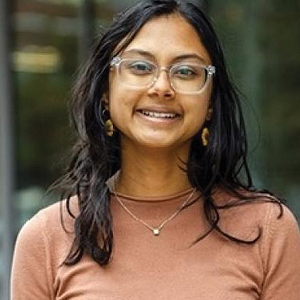
Anushree Chaudhuri of MIT is heading to the London School of Economics and Political Science as a 2024 Marshall Scholar. Other South Asian winners of the scholarship include Arushi Avachat, Hari Choudhari, Simar Bajaj, Haaris Jilani, Sarosh Nagar, Anya Wahal, and Jamila Beesley. For the 50 scholars chosen every year, tuition and living expenses are paid for two or three years of master’s and doctoral studies in the U.K.
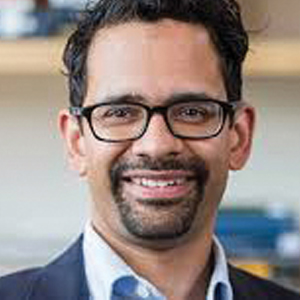
Sunil Amrith, the Renu and Anand Dhawan Professor of History at Yale, is the 2024 winner of the Fukuoka Academic Prize. Three annual prizes are awarded in the fields of Asian studies, arts, and culture. Amrith, who focuses on the environment, migration, and public health, was recognized for his contributions to global history from multiple perspectives. Amrith, who grew up in Singapore, earned his PhD from Cambridge.
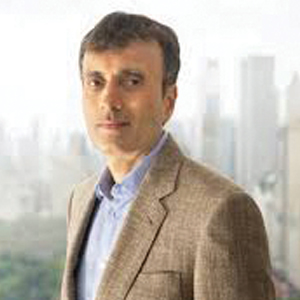
Ruchir Sharma, apart from being the head of Rockefeller Capital Management’s international business, is an author and a Financial Times columnist. His debut book, Breakout Nations: In Pursuit of the Next Economic Miracles, was an international bestseller. He has written three other books, including The Ten Rules of Successful Nations and What Went Wrong with Capitalism, which was released earlier this year by Simon & Schuster.
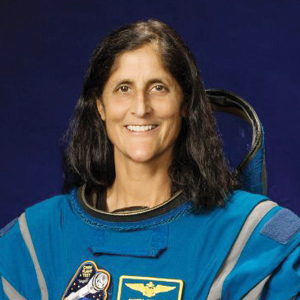
Sunita Williams (“Suni”) and Barry (“Butch”) Wilmore have been in space longer than anticipated due to problems with the Starliner spacecraft (thruster malfunctions and helium leaks). The mission, originally scheduled for eight weeks, has stretched well beyond eight weeks as NASA works on the best solution to bring them back safely. Williams, who has spent long stints in space, is reportedly suffering from blurred vision.
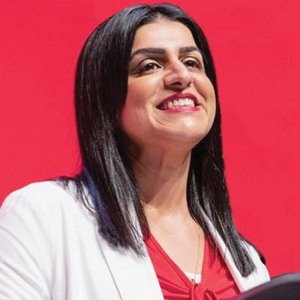
Shabana Mahmood is the highest-ranking South Asian Brit in the U.K. government formed by the Labour Party. She holds the post of Lord Chancellor and Secretary of State for Justice in Keir Starmer’s cabinet. A Labour MP as well, Mahmood represents Birmingham Ladywood. The daughter of Kashmiri parents with roots in Pakistan, Mahmood earned her bachelor’s degree from Oxford before she became a barrister.
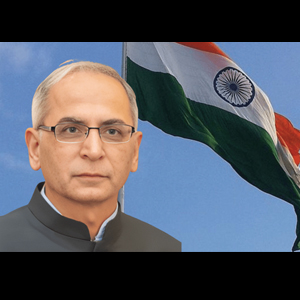
Vinay Mohan Kwatra is the new Ambassador of India to the U.S. He takes over from Taranjit Singh Sandhu, who served as the envoy for four years in D.C. Kwatra, who was previously India’s Foreign Secretary and Joint Secretary at the Ministry of External Affairs in New Delhi, had an earlier stint in the U.S. when he was Minister (Commerce) at the Embassy of India in the U.S. He has been a diplomat for over three decades.
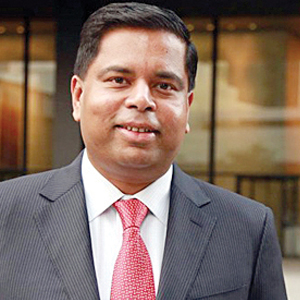
Gary Anandasangaree, appointed to the cabinet in the Canadian government, has a unique portfolio. He is the Minister of Crown-Indigenous Affairs. Responsible for building nation-to-nation relationships and supporting the self-determination of the Indigenous population, he works in partnership with First Nations, Inuit, and Métis peoples. A notable human rights lawyer, he came to Canada as a Tamil refugee.
>> >> >> >>
INDIAN INDIE FILMS WINNING RECOGNITION
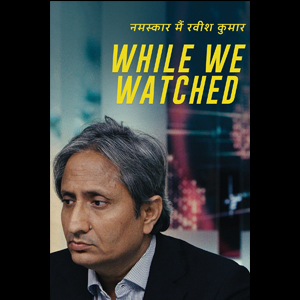 It was 70 years ago that Bimal Roy’s Do Bigha Zameen won the International Prize at the film festival in Cannes. Also in the 1950s, Satyajit Ray’s celebrated Apu Trilogy was honored with prestigious foreign prizes, including the Golden Lion for Aparajito at the Venice Film Festival. Lately, Indian indie films have been making a splash again on the world stage. Payal Kapadia’s All We Imagine as Light, focusing on the friendship of three small-town nurses in Mumbai, won the Grand Prix Award at Cannes. A documentary titled All That Breathes, made by Shaunak Sen, is about two Muslim brothers on a mission to save falling birds in Delhi, where the social unrest seems as threatening as the smog. It won the Golden Eye at Cannes, the World Cinema Grand Jury Prize at Sundance, and a Peabody Award.
It was 70 years ago that Bimal Roy’s Do Bigha Zameen won the International Prize at the film festival in Cannes. Also in the 1950s, Satyajit Ray’s celebrated Apu Trilogy was honored with prestigious foreign prizes, including the Golden Lion for Aparajito at the Venice Film Festival. Lately, Indian indie films have been making a splash again on the world stage. Payal Kapadia’s All We Imagine as Light, focusing on the friendship of three small-town nurses in Mumbai, won the Grand Prix Award at Cannes. A documentary titled All That Breathes, made by Shaunak Sen, is about two Muslim brothers on a mission to save falling birds in Delhi, where the social unrest seems as threatening as the smog. It won the Golden Eye at Cannes, the World Cinema Grand Jury Prize at Sundance, and a Peabody Award.
All That Breathes got an Oscar nomination, but it was another Indian film—The Elephant Whisperers—that won the Academy Award for Best Documentary Short Film for the first time. Set in southern India, this film by Kartiki Gonsalves and Guneet Monga is about a mahout couple who form a bond with an orphaned baby elephant. Writing with Fire, which won a Peabody, got an Academy Award nomination, as did the documentary To Kill a Tiger. The latest documentary to win a Peabody is Vinay Shukla’s While We Watched. It features Ravish Kumar, a well-known Indian journalist who refused to be cowed despite immense pressure and intimidation. According to the citation, the film was honored for “its powerful defense of independent journalism and its poignant portrait of everyday courage in the face of radicalized politics and publics.”
/|\ /| \ /|\ /| \
WHY ARE SO MANY PEOPLE LEAVING INDIA?

A Pew survey of Indian Americans found that 76% view India favorably (including 51%, who view it very favorably). Nevertheless, 65% would not move to India. “Among those who would move to India, about half (52%) say the main reason they’d do so is to be close to family,” the survey notes. Given the importance of family ties, why do Indians leave their native land in the first place? For better opportunities. Indians, overwhelmingly, are economic migrants—which should come as no surprise because India, with 1.43 billion people, is the world’s most populous nation. But while it’s understandable why the middle-class want to move abroad, what’s striking is that even affluent Indians are giving up their Indian passports. Some countries woo wealthy individuals with enticements, such as the American EB-5 Immigration Investor Program. Besides economic opportunities, reasons for migration include better infrastructure and healthcare, more prestigious educational institutions for their kids, and a higher passport ranking.
The Indian passport ranks 82 out of 198 passports, according to the latest Henley Passport Index. Higher-ranked passports are more powerful (criteria for measurement are the number of countries one can visit without a visa, diplomatic relations, and international agreements). The U.S. passport ranks number 8, while the top rank goes to Singapore. In 2023, according to the Ministry of External Affairs, 216,219 Indians gave up their citizenship. Do factors like tax benefits also play a role? Yes, and so do reasons like wanting to join relatives living abroad or political climate or safety and security. The government is tightlipped about why people leave India. “The reasons for renouncing/taking citizenship are personal,” the Minister of State for External Affairs said.
& & & & & & & & & &
BOOK MATTERS
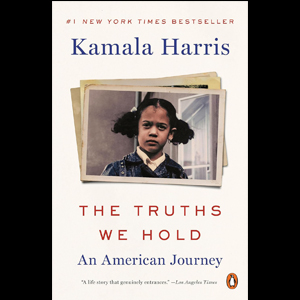
The Truths We Hold: An American Journey (Penguin), by Kamala Harris. This autobiography was published in 2019, well before President Biden chose Harris as his running mate for the 2020 election. Now that Vice President Harris is the Democratic Party’s presidential nominee, there’s been renewed attention in her book—not just in the unabridged edition but in the Young Reader’s Edition as well. Journalist and author Carlos Lozada, who reviews books by and about politicians, notes that Harris’s memories of her family (especially her mother) and her friends are what make the book most memorable. A biography titled Kamala’s Way: An American Life is by Dan Morain. Before Harris became a U.S. Senator, she was a district attorney and the Attorney General of California. She graduated from Howard University and UC Law San Francisco. “First, my name is pronounced ‘comma-la,’ like the punctuation mark,” Harris writes in her autobiography. “It means ‘lotus flower,’ which is a symbol of significance in Indian culture.”
Will Kamala become the next POTUS?
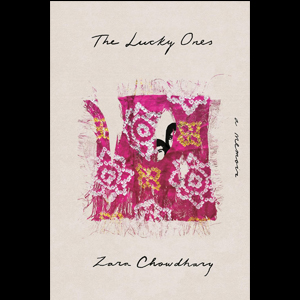
The Lucky Ones: A Memoir (Crown), by Zara Chowdhary. Much has been written about the horrific 2002 Gujarat riots when Narendra Modi, now in his third term as India’s prime minister, was the state’s chief minister. What makes this memoir compelling is that Chowdhary, an accomplished writer and lecturer based in Wisconsin, gives us a first-hand account of the riots and their impact. In 2002, the 16-year-old Chowdhary was living with her family in Ahmedabad when all hell broke loose. She belonged to a well-off Muslim family (her U.S.-educated father was employed by the Gujarat Electricity Board) and they had Hindu friends, but that didn’t insulate them. Chowdhary, who earned master’s degrees in writing in the U.S. and U.K., has written for film and television. She’s an important witness who sheds light on India’s most traumatic episode in this century. The memoir, as author Kiran Desai notes, “is proof that it is in the voice of a minority population that a nation is revealed.”
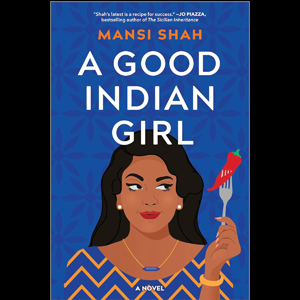
A Good Indian Girl (Park Row), by Mansi Shah. In a novel that may remind one of Under the Tuscan Sun, Jyoti—devastated in New Jersey, following the end of her marriage because she couldn’t become a mother—accepts her friend Karishma’s invitation to visit, yes, Tuscany. There’s a desi twist, inevitably. What comes next is a viral TikTok video (made while Jyoti is drunk), leading to a cross-cultural journey that involves self-discovery, romance, stereotyping, rebirth and, of course, scrumptious Indian-Italian dishes. Meanwhile, Karishma, a disillusioned former editor who is on her own journey, provides insights on how the mainstream book industry works (or doesn’t work) for minority writers. “With mouthwatering food descriptions and an escape into the beauty of Italy, Shah digs into what it takes to unravel all you’ve learned about yourself and find your true purpose,” notes author Sonali Dev. Shah, the author of two other novels—The Direction of the Wind and The Taste of Ginger—has worked as an entertainment attorney in Hollywood.
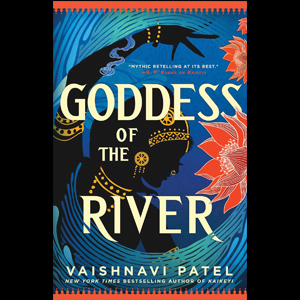
Goddess of the River (Redhook), by Vaishnavi Patel. When Patel is not working as an attorney, she reimagines stories from the Indian epics. A Yale Law School grad, she specializes in civil rights and constitutional law. In her debut novel, Kaikeyi, Patel retold the story of a reviled queen, showing how her priorities were different and how she’d been sidelined because, always, it’s the victor rather than the vanquished who narrates the version that’s passed down through generations. For her new novel, Patel turns from the Ramayana to the Mahabharata to retell the story of goddess Ganga, who becomes a mortal after being cursed by an outraged sage. The tale centers on her, the wicked king she ends up marrying, and her beloved son, Devavrata, whom she has to protect. Noting that we’re still living in the age of darkness (Kali Yuga), Patel writes that many of the worst demons of our world are present in both the epic and her novel, “including sexism, casteism, violence, and war.”
Enjoyed reading Khabar magazine? Subscribe to Khabar and get a full digital copy of this Indian-American community magazine.
blog comments powered by Disqus










